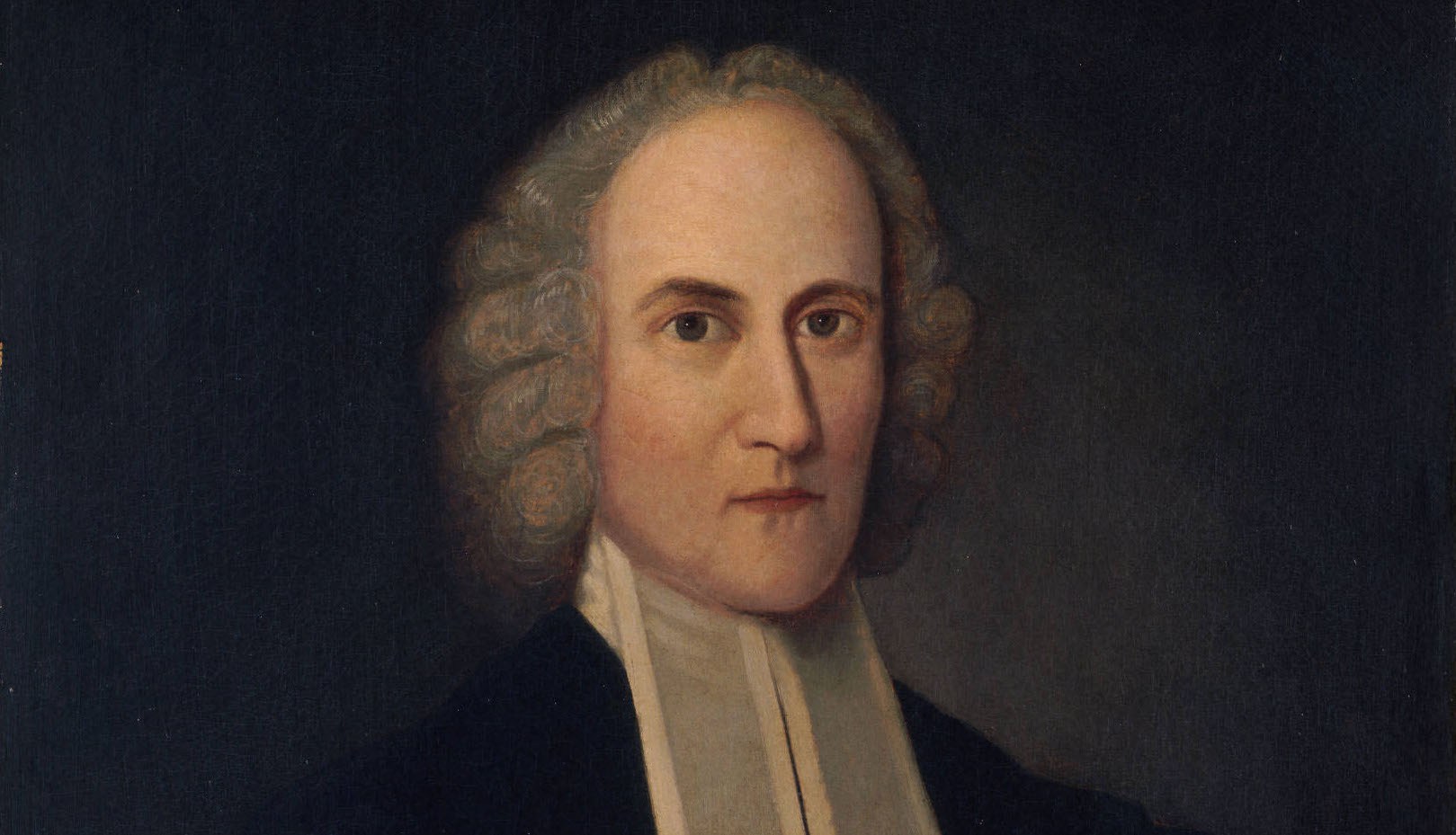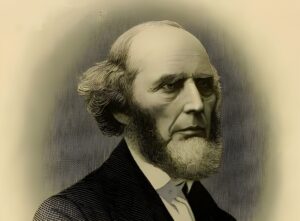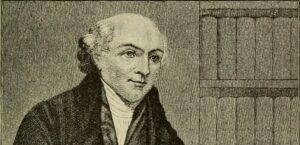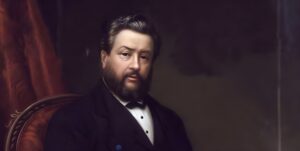Jonathan Edwards (1703-1758) was born in East Windsor, Connecticut, on October 5, 1703, as the only son of Reverend Timothy Edwards and Esther Stoddard Edwards, daughter of Reverend Solomon Stoddard (the magistrate Pope of Northampton). Edwards’ parents invested all their hopes in Jonathan, rigorously training him for a life in clergy. He entered Yale College in 1716; his inquiring mind knew no limits, whether for scientific or literary knowledge. Along with his remarkable mind came a burning desire to be widely recognized as an ‘instrument’ in the cause of his Christ.
Edwards graduated from Yale College in 1720. Subsequently, he went on to obtain a master’s degree and then, during 1722 and 1723, his first pulpit was in a Presbyterian church in New York City. It is assumed that after a brief pastorate in Bolton, Connecticut, Edwards was given a two-year post as a tutor at Yale in 1724. In the midst of all that was going on in Edwards’ life, the desire of his heart was to serve the Lord wholeheartedly in any circumstance. Anyone who knew him could observe from his life that he had a burning desire to be used of God.
Without any doubt, one can argue that Edwards was counted as one of colonial America’s greatest theologians and philosophers. During his life, he served as a teacher, pastor, revivalist, missionary, and college president. He established himself as one of the most influential churchmen in the Anglo-American religious world. In his lifetime, he impacted thousands of his students, believers, friends, associates, colleagues, and acquaintances across many regions. Beyond his impact in his own time, his work and life continue to impress and enrich generations of students, who find in his writings keys to the past and their own present.
Edwards stands as an illustrious religious figure of an age when religion was predominant. The American revolution did not yet take place at the time of his death on March 22, 1758. Puritans shaped the world of Edwards to a great extent. From them he inherited the supreme challenge of reconciling all of life and learning God’s law as contained in Scripture. In the course of a career spanning four decades, he reshaped and refashioned the seventeenth century Puritan worldview into something that was entirely different.
For Puritans, who are not given to secular pursuits, theology stood as the artistic and intellectual means through which culture’s highest ideals were expressed. Like Milton, an English poet, theologian, intellectual, and civil servant for the Commonwealth of England, who impacted tens of thousands, Edwards sought a renewal in English-speaking religion that would do justice to the Reformation sparked by Martin Luther. As Augustine sought to reconcile piety with the highest forms of secular learning in the Latin world of logic and rhetoric, so Edwards sought to reconcile piety with the new scientific and philosophical age demarcated by Newton and Locke.
Edwards was one of the most prolific of American authors before 1800. Much of his work lay at the cutting edge of knowledge. Being inaccessible to most in earlier times, a compilation of his published and unpublished works is nearing completion in the Yale edition of The Works of Jonathan Edwards, begun in 1953.
In his notes for the treatises ‘Of Being’ and ‘The Mind,’ not being published until after his death, Edwards displayed some brilliant philosophical arguments. Edwards, in his letter to Benjamin Colman (1673-1747) who was pastor of the Brattle Street Church in Boston, explains how he would undertake the writing and perform it in as just and faithful manner as in him lies the work entrusted to his care. Rev. Solomon Stoddard (1643-1729), Edwards’ grandfather, was not ordained when he started his ministry. He continued in ministry nearly sixty years. He was blessed with extraordinary success in his ministry in the conversion of many souls. He had the comfort before dying to see the appearances of divine work among some who were backsliding and considerable ingathering of souls even as Edwards settled with him in ministry about two years before his death. In the fall of 1729, young people were asked to spend time in social religion after the lectures to avoid dividing themselves to meet in several groups in various parts of the town. This has been ever since practiced and was imitated by adults too. Then came a wave of spiritual awakening among people and they gave less attention to business and more attention to the reading of the word and prayer. The only thing in view was to reach the Kingdom of Heaven. Gradually, in the spring and the summer following in 1735, spirituality was replaced by legalism and people feared and were depressed and then gave way to the flesh.
Edwards was a great Bible expositor and fully engaged in the ministry of strengthening believers in the Lord and bringing new believers to the Lord. In his works, he explains the nature of the affections and their importance in religion from the epistle of First Peter. Apostle Peter speaks of the trials of faith and being in heaviness through manifold temptations and trials. True faith needs to be proven to be true by trials and temptations but ends with praise, honor, and glory. True virtue never appears as lovely as when it is most oppressed and the divine excellency of real Christianity is never exhibited with such advantage as when under great trials that true faith appears more precious than pure gold. When true faith is tested by trials, it purifies and increases the individual’s level of faith. The religion that God requires is to be earnest in true religious faith, which consists of caring for the widows, fatherless, aliens, and so on. The love that true religion offers takes a hold of one’s soul when he/she hears God’s Word and takes heed.
Reflections
To understand Jonathan Edwards, one must experience his personal spirituality. It is important to know what drove that incredible intellect, and yet kept him bound to the Word of God. In Edwards ministry, we do not find a simply slavish repetition of old Puritan concepts, but a new and living statement of them within a changing cultural context. The account of Edwards and the works he accomplished for God far exceeds the ordinary. Edwards was extraordinary because of his piety and devotion to God and his passion for God’s ministry. God is not respecter of persons and does not show any partiality in His dealings with humans. And so, even today God can accomplish great things through His chosen ones including ordinary believers who are committed and willing to serve Him wholeheartedly. The church today needs to encounter the supreme challenge of reconciling all of life and learning to do the will of God and be effective in the evangelization of people near and far. Jesus commands us,
Then Jesus came to them and said, “All authority in heaven and on earth has been given to me. Therefore go and make disciples of all nations, baptizing them in the name of the Father and of the Son and of the Holy Spirit, and teaching them to obey everything I have commanded you. And surely I am with you always, to the very end of the age” (Matthew 28:18-20)




